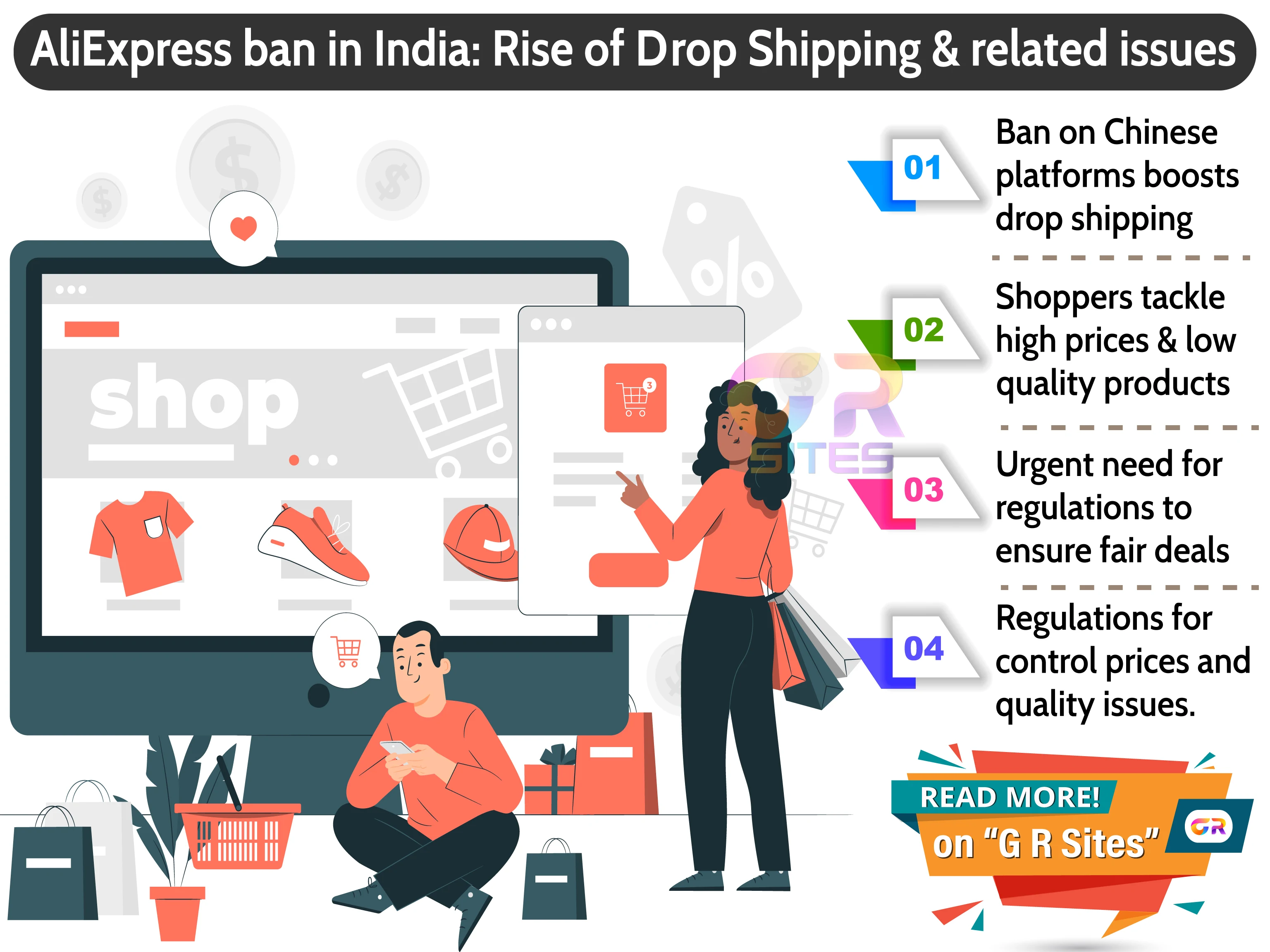In recent times, the Indian government's decision to restrict consumers from purchasing products from Chinese e-commerce giants like AliExpress has sparked significant repercussions in the online retail landscape. This move was intended to curb the influx of Chinese goods into the Indian market amidst geopolitical tensions. However, it has inadvertently given rise to a burgeoning trend in drop shipping, particularly in the realm of electronic products. As a result, regular shoppers find themselves navigating a maze of inflated prices and unregulated transactions. This blog delves into the aftermath of the ban, shedding light on the emergence of drop shipping as a dominant force in the Indian consumer market and the urgent need for regulatory measures to ensure fair pricing and consumer protection.
Advent of Drop Shipping: A Double-Edged Sword
Drop shipping, once a niche business model, has now flourished into a formidable industry, propelled by the restrictions imposed on Chinese e-commerce platforms. While this alternative method of retail offers convenience and accessibility, it comes with its own set of challenges and controversies:
- Price Surge: With the absence of competition from Chinese e-commerce platforms, drop shipping agents and companies have capitalized on the void, inflating prices to exorbitant levels. This surge in pricing has left consumers grappling with the dilemma of either paying inflated rates or forgoing their desired products altogether.
- Lack of Regulation: Unlike traditional retail channels, drop shipping operates in a regulatory grey area, devoid of standardized pricing mechanisms or consumer protection measures. This lack of oversight exposes consumers to potential exploitation and fraudulent practices, leaving them vulnerable in an uncharted marketplace.
- Quality Concerns: Beyond pricing issues, the proliferation of drop shipping raises legitimate concerns regarding product quality and authenticity. Without stringent quality control measures in place, consumers run the risk of receiving substandard or counterfeit goods, further exacerbating their mistrust in the online retail landscape.
Impact on Consumers:
The ban on AliExpress has had a profound impact on everyday consumers, leading to frustration and inconvenience:
- Limited Product Variety: With AliExpress unavailable, consumers have limited access to a wide range of products, particularly unique or niche items.
- Increased Prices: Without the competitive pricing offered by AliExpress, consumers are forced to purchase similar products from local retailers or drop shipping companies at higher prices.
- Loss of Convenience: AliExpress was known for its wide range of product categories and convenient shipping options, making the shopping experience seamless for consumers. The ban has deprived shoppers of this convenience.
Call for Regulation: Striking a Balance
As the repercussions of the government's ban on Chinese e-commerce platforms continue to unfold, there is an urgent need for regulatory intervention to mitigate the adverse effects of drop shipping and safeguard consumer interests. Key considerations for regulatory measures include:
- Price Regulation: Implementing robust pricing regulations is paramount to curbing price gouging and ensuring that consumers are not subject to unjustifiable markups. By establishing price ceilings or guidelines, regulators can enforce fair pricing practices across drop shipping channels, fostering a more equitable marketplace for consumers.
- Transparency and Accountability: Enhancing transparency and accountability within the drop shipping ecosystem is essential to building consumer trust and confidence. Mandating clear disclosure of pricing structures, shipping timelines, and return policies empowers consumers to make informed purchasing decisions, while holding drop shipping entities accountable for their business practices.
- Quality Assurance: Instituting stringent quality assurance standards is imperative to safeguarding consumers against counterfeit and substandard products. By imposing rigorous product inspection protocols and authentication processes, regulators can uphold the integrity of the marketplace and uphold consumer confidence in the authenticity of goods purchased through drop shipping channels.
Conclusion
The Indian government's ban on Chinese e-commerce platforms has inadvertently catalyzed the proliferation of drop shipping, presenting both opportunities and challenges for consumers in the online retail landscape. While drop shipping offers newfound accessibility and convenience, it also brings forth concerns regarding inflated prices, lack of regulation, and quality assurance. As such, there is an urgent need for regulatory measures to address these issues and ensure a fair and transparent marketplace for consumers. By implementing price regulations, enhancing transparency, and enforcing quality assurance standards, regulators can mitigate the adverse effects of drop shipping and foster a more equitable retail ecosystem. Only through concerted efforts to regulate and oversee the burgeoning drop shipping industry can we uphold consumer rights and uphold the integrity of the online marketplace in India.

No comments:
Post a Comment